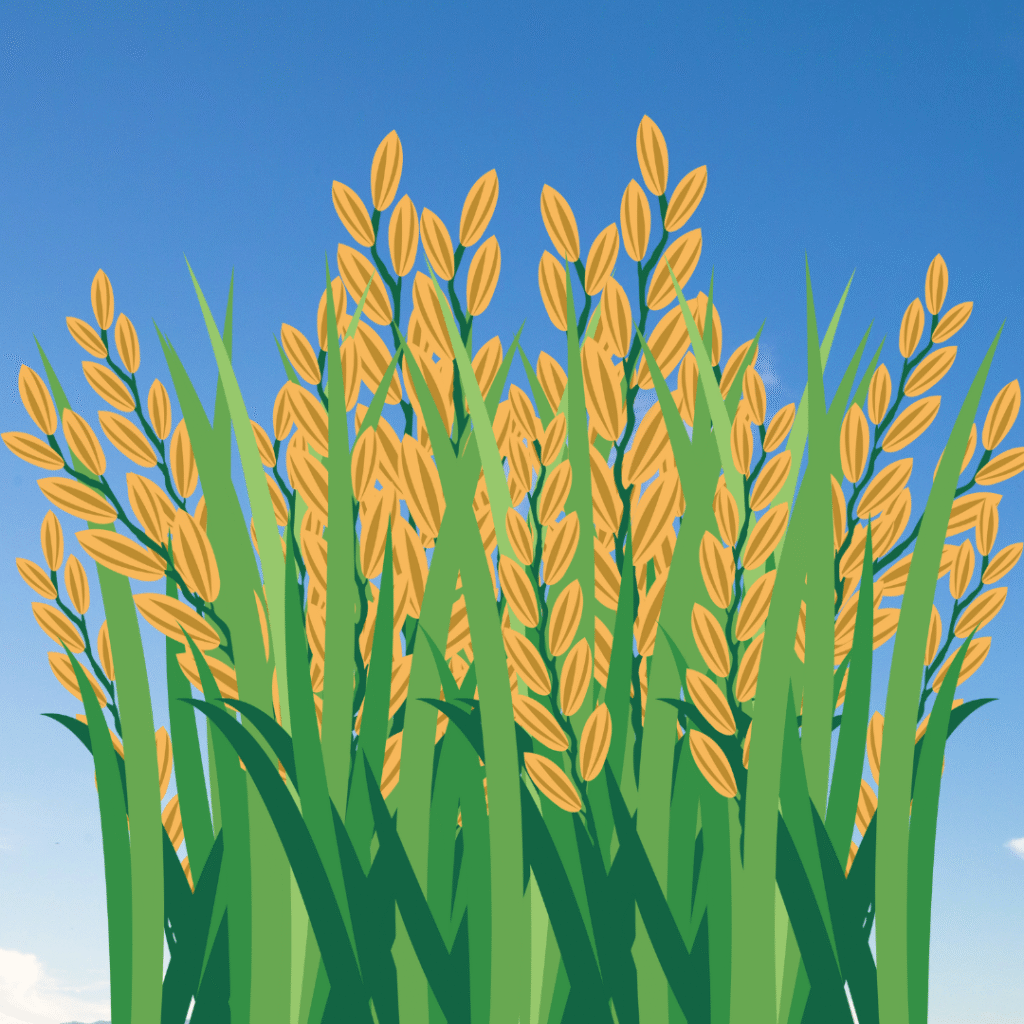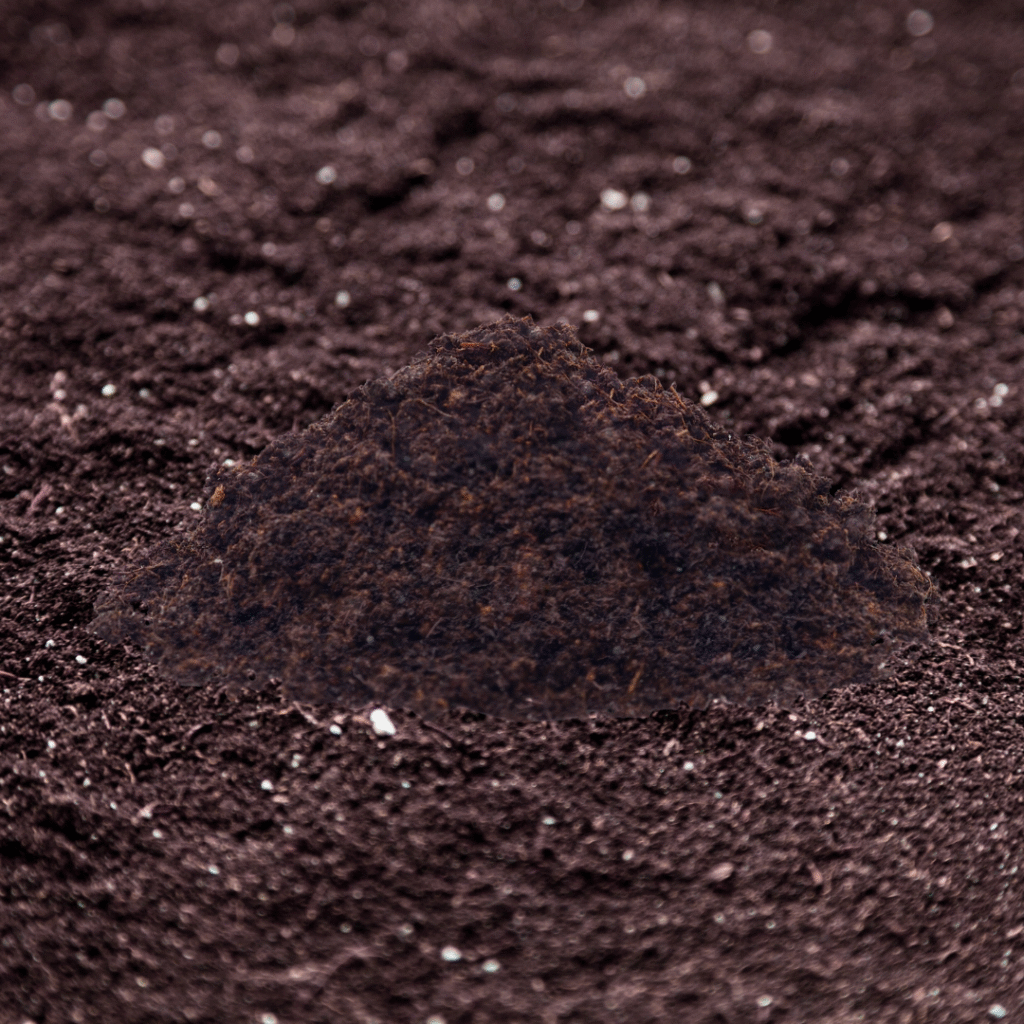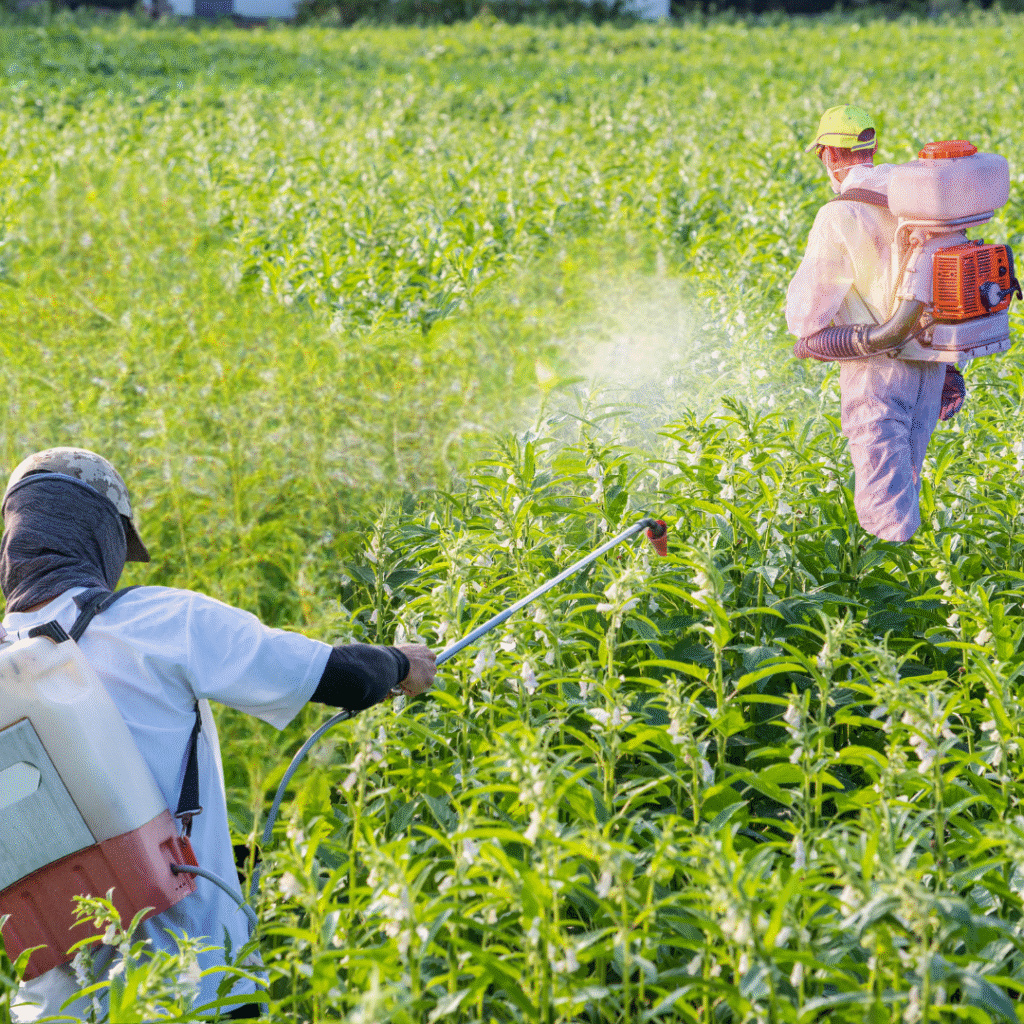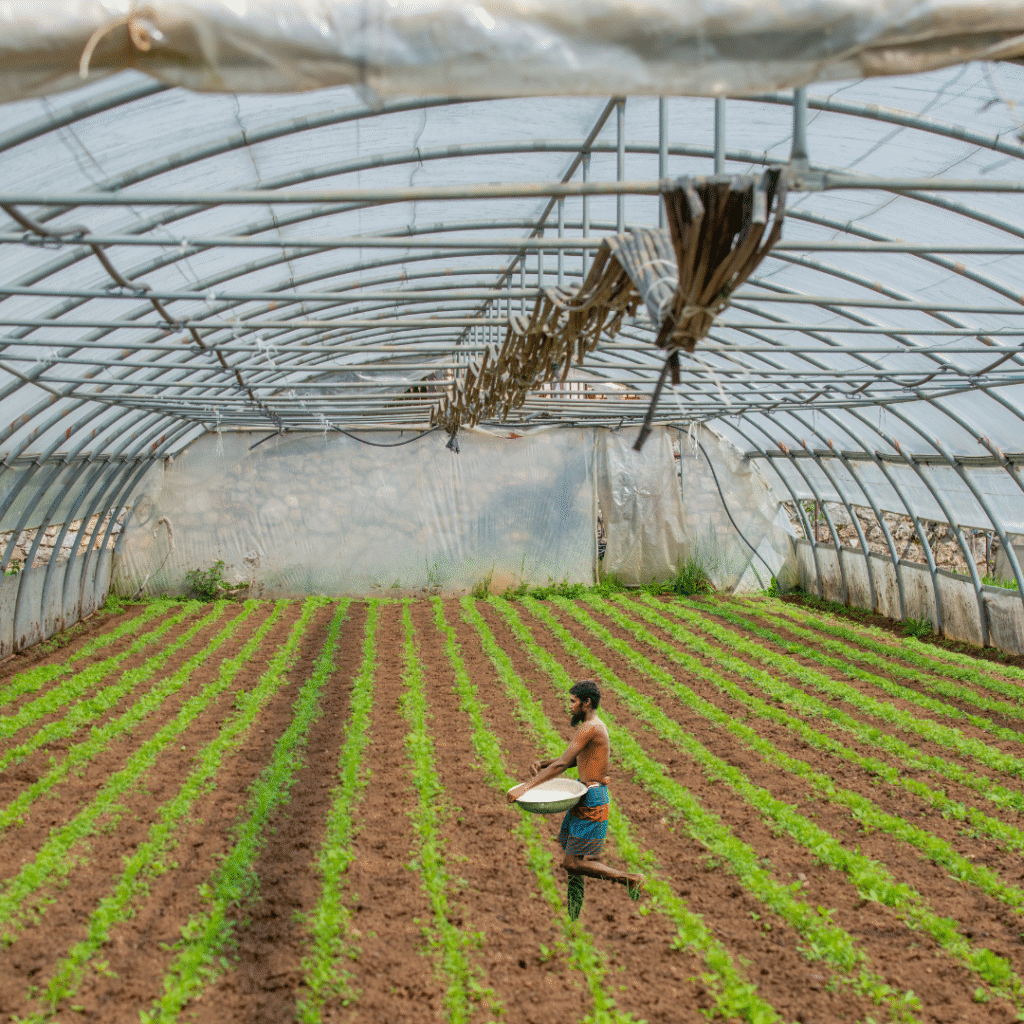Organic Farming for beginners: A guide to start Naturally
Grow food as nature intended — pure, wholesome, and chemical-free.
In today’s chemical-driven world, more and more people are turning back to their roots – rediscovering the wisdom of Organic Farming. It’s not just a method of cultivation; it’s a lifestyle, a movement, and by this, we are also able to protect Mother Earth.
If you’re new to this concept, don’t worry. This guide for beginners will walk you through everything you need to know – from the basic principles to how you can start your own organic venture, whether it’s a backyard garden or a full-fledged farm.
What is Organic Farming?
Organic Farming is a method of growing crops without using synthetic fertilizers, pesticides, or genetically modified organisms (GMOs). Instead, it relies on natural techniques like composting, crop rotation, biological pest control, and green manure.
In Short, it’s a way how our Ancestors used to farm before chemicals took over the agricultural field. Organic Farming respects the balance of nature. In Organic Farming, we treat soil as a living system, not just a medium to hold roots.
Why Organic Farming matters more then ever
Modern agriculture has made food cheaper but not necessarily better. The heavy use of chemicals, pesticides, and fertilizers has had a detrimental impact on both our health and the environment.
Organic Farming is becoming the need of the hour because:
Healthier Food: Organically grown produce is richer in nutrients, free from harmful residues, and tastes fresher.
Environmental Protection: Organic methods reduce soil erosion, conserve water, and promote biodiversity.
Sustainable Future: It restores the natural fertility of soil, ensuring long-term agricultural productivity.
Animal Welfare: In organic livestock farming, animals are raised in humane conditions, free from antibiotics and hormones.
Read the Impact of Pesticide Use in Agriculture

Core Principles of Organic Farming
To understand Organic Farming, you must first understand its foundation. The entire concept stands on four guiding principles set by the International Federation of Organic Agriculture Movements (IFOAM):
1. Health: Maintain and enhance the health of soil, plants, animals, humans, and the planet.
2. Ecology: Base farming systems on living ecological systems and cycles.
3. Fairness: Build relationships that ensure fairness with all stakeholders — from farmers to consumers.
4. Care: Manage agriculture responsibly to protect the well-being of present and future generations.
10 Steps to Start Organic Farming: A Beginner’s Roadmap
10 Beginner’s step that will help you to start your Organic Journey, (Your place or Your Money doesn’t works here, what works is your Consistency and Your Efforts). If you are starting with your garden, be sure that enough sunlight, water, and nutrients are available for the plants.
1. Start Small and Learn Constantly
Begin with a small piece of land or even a kitchen garden. Understand your soil, climate, and local crops. Organic Farming is a learning process – patience and observation are your best tools.
2. Prepare and Enrich Your Soil
Healthy soil is the heart of Organic Farming.
– Use compost, cow dung, and vermicompost to increase fertility.
-Practice mulching to retain moisture.
-Avoid any chemical fertilizers or pesticides.
3. Choose the Right Crops
Select crops that naturally grow well in your region. Local and seasonal crops require less maintenance and are more resistant to pests and diseases.
4. Practice Crop Rotation and Intercropping
Rotate your crops each season to maintain soil nutrients and reduce pest buildup. Intercropping – growing two or more crops together also improves biodiversity and yields.


5. Control Pests Naturally
Use nature’s own solutions:
1. Neem oil sprays
2. Companion planting
3. Beneficial insects like ladybugs
4. Homemade organic pesticides from garlic, chili, and turmeric
No need for chemicals when the environment offers natural protection
6. Use Organic Seeds
Always opt for certified organic seeds. These seeds are not genetically modified and are better adapted to organic growing conditions.
7. Composting is Key
Composting turns your kitchen and farm waste into rich, nutrient-filled fertilizer. It’s free, sustainable, and vital for Organic Farming success.


8. Save Water Wisely
Adopt techniques like drip irrigation and rainwater harvesting to conserve water, a precious resource that must never be wasted.
9. Get Certified (Optional but Valuable)
If you plan to sell your produce commercially, you can apply for organic certification from recognized authorities. This ensures customer trust and market credibility.
10. Stay Patient and Persistent
Organic Farming is not an overnight success story. It’s a slow, nurturing journey – but one that rewards you with healthier crops, cleaner soil, and inner satisfaction.


Benefits of Organic Farming for Farmers and Consumers
For Farmers:
1. Reduced dependency on costly chemicals.
2. Improved soil health and long-term fertility.
3. Better market value for organic produce.
For Consumers:
1. Chemical-free and nutrient-rich food.
2. Safer for children, pregnant women, and the elderly.
3. Supports local farmers and sustainable practices.
For Farmers:
1. Reduced dependency on costly chemicals.
2. Improved soil health and long-term fertility.
3. Better market value for organic produce.
For Consumers:
1. Chemical-free and nutrient-rich food.
2. Safer for children, pregnant women, and the elderly.
3. Supports local farmers and sustainable practices.
Common Myths About Organic Farming
❌ Myth: Organic Farming gives low yields.
✅ Reality: Yields may start low but increase over time as soil health improves.
❌ Myth: It’s hard to do.
✅ Reality: With knowledge and patience, anyone can start — even in their backyard!
❌ Myth: Organic produce looks imperfect, so it must be bad
✅ Reality: Organic fruit & vegetables are richer in nutrients and free from toxic residues.
Myth: Organic produce is too expensive.❌
Reality: Prices are gradually dropping as demand grows and more farmers join in.✅
Myth: Organic Farming means no pest control at all❌
Reality: Organic farmers do control pests, but they do it naturally.✅
Myth: Organic Farming is old-fashioned and outdated.❌
Reality: It’s actually the perfect blend of tradition and science.✅
❌ Myth: Organic Farming gives low yields.
✅ Reality: Yields may start low but increase over time as soil health improves.
❌ Myth: It’s hard to do.
✅ Reality: With knowledge and patience, anyone can start — even in their backyard!
❌ Myth: Organic produce looks imperfect, so it must be bad
✅ Reality: Organic fruit & vegetables are richer in nutrients and free from toxic residues.
Myth: Organic produce is too expensive.❌
Reality: Prices are gradually dropping as demand grows and more farmers join in.✅
Myth: Organic Farming means no pest control at all❌
Reality: Organic farmers do control pests, but they do it naturally.✅
Myth: Organic Farming is old-fashioned and outdated.❌
Reality: It’s actually the perfect blend of tradition and science.✅


The Future of Organic Farming
The world is awakening to the need for sustainability. From small family farms to large corporations, everyone is realizing that Organic Farming is not just an option – it’s a responsibility.
India, with its rich agricultural heritage, is perfectly placed to lead this movement. Farmers are returning to traditional methods enriched with modern innovation – a perfect blend of wisdom and technology.
Organic Farming is not merely about growing crops; it’s about growing consciousness. It’s about reviving respect for the earth that feeds us.
If you’re a beginner, take the first step today. Start small, stay committed, and watch how nature rewards your sincerity.
By choosing Organic Farming, you choose health, purity, and harmony – for yourself and generations to come.
Organic Farming is not about growing crops; it’s about growing
consciousness. It’s about reviving respect for the earth .
If you’re a beginner, take the first step today. Start small, stay committed, and watch how nature rewards your sincerity.
By choosing Organic Farming, you choose health, purity, and harmony – for yourself and generations to come.



